Ana Lua Caiano – ‘Se Dançar É Só Depois’
 Sounds like … seeking and longing.
Sounds like … seeking and longing.
Portuguese artist Ana Lua Caiano evokes familiar memories through unfamiliar sounds. Striking percussive rhythms and impelling vocals carry us through her EP Se Dançar É Só Depois. The recurring synth sounds are at times dark and somber, at others bright and vibrant enhancing the depth of the composition. Despite the common ground of the rhythms and choruses, each song maintains its own tempo, has its personal drive, and tells its own story. Throughout the EP, the sound artist remembers and retells tales of Portuguese folk music. We hear electronic elements combined with the use of traditional Fado instruments and Portuguese choral harmonies and canons. The synthesizer interruptions come as a surprise and yet embed themselves perfectly within the folk tunes. As a multi-instrumentalist, Ana Lua Caiano plays almost all of the instruments herself, from vocals, various percussive instruments, bass drum and synthesizers. The most striking element of her music, apart from the vocals, are the drums, which often have a marching character. Their driving beat triggers a variety of emotions in the listener, even a certain unease and hecticness. Perhaps these songs are not intended to make us feel good. Rather, they force us to listen and observe.
The six songs of the EP blend into each other while listening. Only, the headlining track Se Dançar É Só Depois in the middle of the record stands out noticeably. However, the joint atmosphere of the EP has nothing monotonous about it, but rather gives us a sense of a holistic work of art. From this unique compound, Ana Lua Caiano creates songs and compositions that we may not have heard before. In doing so, she temps us to join the search of new sounds and stories. (Sophie Romy)
Stream It: ► Spotify / ► TIDAL / ► Apple Music / ► Bandcamp
7ebra – ‘Bird Hour’
Sounds like … watching your feelings spin inside a washing machine.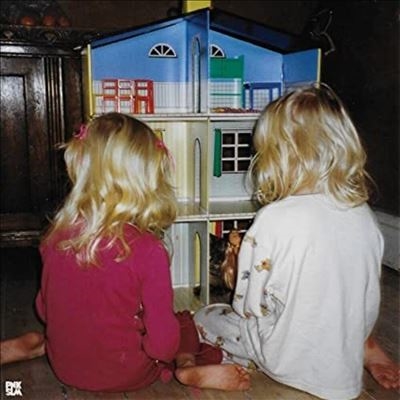
7ebra entered the indie-rock scene without knocking on the door. In fact, they kicked it down. With their debut album Bird Hour, Swedish twins Inez and Ella Johansson hypnotize the listener through embroidered guitar riffs and dreamy harmonies, making it impossible to look away. After the two debut singles If I Ask Her and I Have A Lot To Say introduced 7ebra to the world in 2022, the scene was set for Bird Hour to establish itself as one of the most promising debut albums of this year. 7ebra’s indie is blunt and disarming, diving into intricate themes such as mental health and the relationship with one’s self – as if they were holding a mirror in front of the listener, the Malmö-based sisters prompt a new kind of ironic (yet still effective) self-reflection and discovery.
From beautifully raw songs like Stripey Horsey to more confrontational tracks like I Have A Lot To Say, Bird Hour’s lyrics are delivered with frankness and a sparkle of wit: “I have a lot to say, just not to your face / Your face really bugs me, I have to look away”. This, together with spacious vocals and minimalistic arrangements, contributes to the feeling of intimacy that permeates the whole record – for 7ebra, simplicity is a winning card. At first glance mysteriously simple, indeed, Bird Hour compels the listener into unraveling the record layer by layer, bound to get to the bottom of its meaning: it is not an album one can listen to only once, as the longing for another replay will start bubbling up as soon as the last notes of Wakey Wakey, the closing track of the record, dissolve in the air. Turning their backs to us and rather facing their doll house just like in the picture that made the album cover, Inez and Ella do not need to check if we are listening: they know we are. (Giulia Leonarduzzi)
Stream It: ► Spotify / ► TIDAL / ► Apple Music / ► Bandcamp
Cloth – ‘Secret Measure’
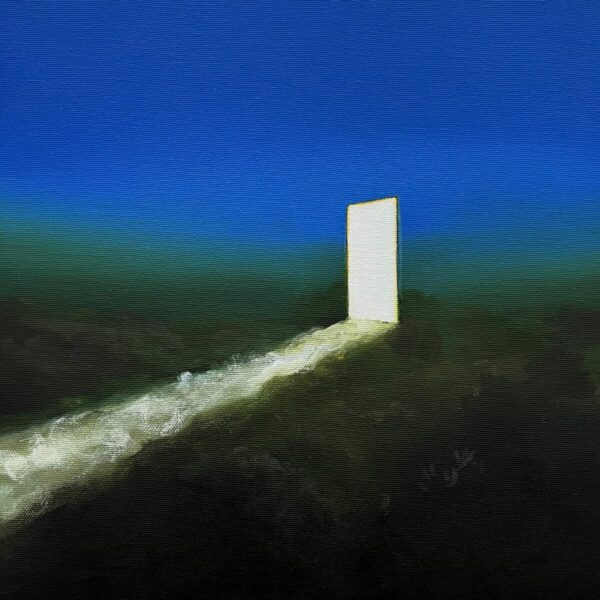 Sounds like … giving in to a soft addiction.
Sounds like … giving in to a soft addiction.
The twin duo that forms the Glaswegian outfit Cloth is living proof that the electro-pop hype of the 2000’s around bands like The xx has left its fair footprint on the contemporary musical landscape. With Secret Measure, their sophomore full-length after their 2019’s debut record, Rachael and Paul Swinton prove to the point why the whispery but ever-present beauty of their lo-fi pop gems not only belong in the here and now – their artistic output is a unique endeavour into spaces of fragile intimacy and offers profound insights into solitary observations, caught amidst the mellow sonic scapes they are wrapped in.
Muted and subdued – these are some of the first adjectives that come to mind when entering Cloth‘s Secret Measure. And the somehow mysterious record title supports this notion: these songs are meant to be digested slowly, only then their true magic begins to unfold. The beginning title track serves as a good introduction to the hushed affair of Secret Measure, as its muted guitars and repetitive beat patterns draw you in an electrifying blanket of awe and expectation. Oftentimes the vocal parts and instrumentation seem to belong to two sides of one road, seemingly existing next to each other, with the sung parts walking past you loud and clear, while the electronic-funky guitars and beats pass through on the other side of the street. The hazy Never Know is one example here, Another might be a further one, while the middle Ladder is one piece that totally buries the listener with its encompassing softness and battling attitude: “Where do you see yourself / in the long run?”, the song asks and as this feeling does accompany one until the final Blue Space, Secret Measure dissolves into where it came from, out of the azure land of nobody, fading away into the dark ocean of time. (Andreas Peters)
Stream It: ► Spotify / ► TIDAL / ► Apple Music / ► Bandcamp
Bongeziwe Mabandla – ‘amaXesha’
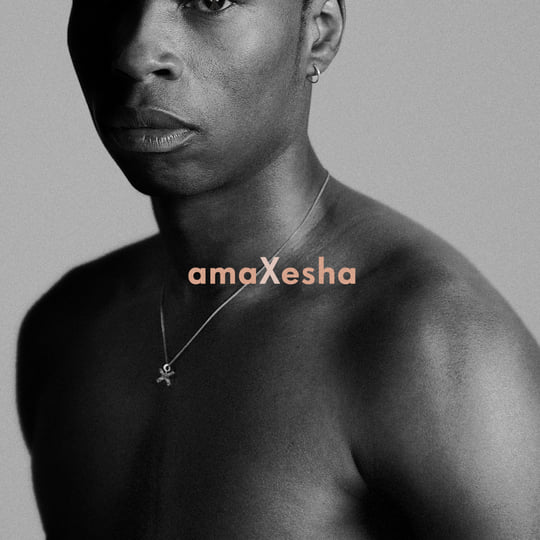 Sounds like … tomorrow’s yesterday.
Sounds like … tomorrow’s yesterday.
What do you get when you mix ancient Xhosa folk tradition with synth sounds, soul and jazzy influences, and a voice capable of evoking almost any emotion within its listenership? Right, a look into a future made possible by being hyper-aware of your past – tied together by a tremendous amount of pride in doing so. Bongeziwe Mabandla’s fourth album delivers just that. On amaXesha, the South-African singer-songwriter, which to me is a title that understates the craftmanship of Mabandla’s work, thematizes the different relationships that have shaped his life. Not just in relation to people but to time as well, as the album’s title translates to “The Times”, giving expression to the fluidity and connectedness we all share to everything in our lives.
An album created in the midst of the COVID lockdown in South Africa, the songs reflect a conversation about the past, present and future. The first song, Sisahleleleni (i), opens with a question of reason: “Why are we still here| If we are not happy here | What is it exactly that’s keeping us here| (Übersetzung)”. Over the course of the album, Mabandla answers this question by narrating about finding love in imperfection in noba bangathini to showcasing the change in dynamics time forces on us and our parents with the lullaby thula. Or the pain in love, either in a story about being rejected by a lover in the form of ndikhale, or the very danceable hlala, where Mabandla begs for a loved one to not leave him and “stay”.
Musically, the album is shaped by Mabandla’s producer Tiago Correia-Paulo. Elements of folk, soul, alternative, synth-pop and afro-futurism all share this space, woven together by Tiago with ease. Where Mabandla’s first three albums focused very much so on his falsetto voice and backing of acoustic guitars to emphasize it, both Mabandla and Tiago made a conscious decision to move into a more pluralistic direction this time around. Synth and drum loops play center roles on many of the tracks, while Mabandla’s voice of course still shines as an instrument in its own right. Highlights for me include the tentative noba bangathini, charged with an emotional restriction in terms of instrumentalization, while the chorus of the track echoes a confession of love over and over again: “Ewe (Ewe) Ewe (Ewe) | Ndifuna (Ewe) wena uhlale (Ewe). Yes (Yes) Yes (Yes)| I want you to stay.” Mabandla and Tiago created a timeless album for the portfolio of the afro-futurism and African soul genre that already established itself as a benchmark for future artists to come. (Felicia Aghaye)
Stream It: ► Spotify / ► TIDAL / ► Apple Music / ► Bandcamp
Mandy, Indiana – ‘i’ve seen a way’
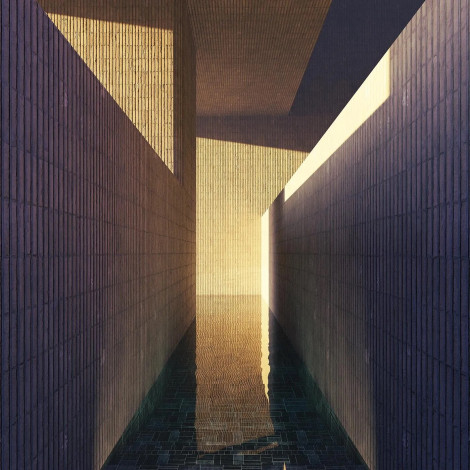 Sounds like … the 21st century facing itself.
Sounds like … the 21st century facing itself.
If there is one thing to hypothesise about this fairly young musical decade, then it is the notion of the total dissolution of the idea of genre – Manchester-bred quartet Mandy, Indiana are just another example for that and their just-released debut i’ve seen a way is a radical statement in that regard. Channeling the “chaos of everyday life”, the quartet fuse together a wild mélange of different influences from experimental noise to industrial electronics just to smash it all together while the rush of fury meets at a standpoint with the exhilaration of the lust for life and survival.
With brooding excitement do the opening flares of Love Theme (4K VHS) announce the noisy rush of i’ve seen a way. While the hushed and yet stomping follow-up track Drag [Crashed] funnels its way through by means of hypnotic electronic synths fever dreams follows that notion, it opens up a space of restless anxieties and foreshadows the hasty essence of this record. When you listen to something you cannot file in anything you know, it usually helps to let it sink in. With these songs however, there is no such thing, as it never lets you rest to do so. With brutal dedication to explore, tear apart and a furious thrill to embrace the chaos, there is a ravishing beauty in tracks like The Driving Rain (18) (and a serious nod to Daft Punk), while other “Berghain-ready” fillers like Peach Fuzz mount up to the wide and exotic raves that i’ve seen a way represents – the conglomeration of everything, accusing a guilty world while still having a decent time in it. (Andreas Peters)
Stream It: ► Spotify / ► TIDAL / ► Apple Music / ► Bandcamp
Arlo Parks – ‘My Soft Machine’
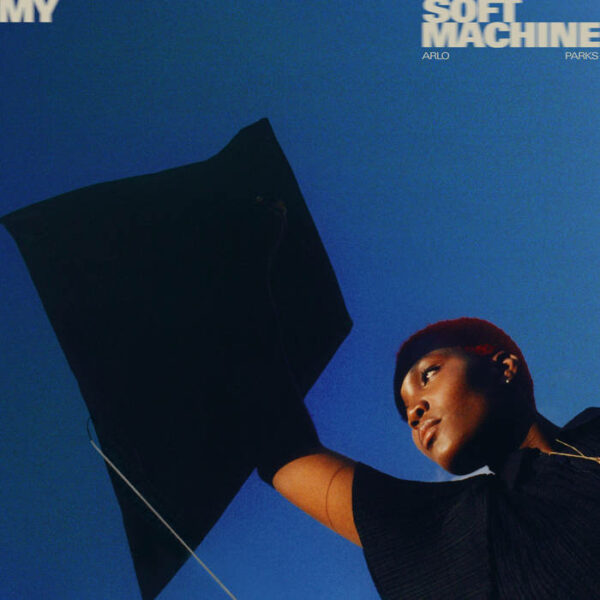 Sounds like … dreamy reminiscence.
Sounds like … dreamy reminiscence.
Londoner artist Arlo Parks delivers a deeply personal and poetic follow-up piece with her second album My Soft Machine. The LA-based singer delves into topics of existential dread, struggling with PTSD, and caring for friends going through hard times, all the while juggling the tumultuous highs and lows of finding, losing and intensely experiencing love. While Arlo Parks was more introspective on her debut Collapsed in Sunbeams (2021), where she was looking for universality in her specific experiences, the new album My Soft Machine is characterized by the same poetic sincerity but gained a more adventurous tone in expressing these emotions.
Parks takes a step back to look at the last couple of years of her life, taking us along on each jump into a devastatingly intimate story, that leaves us either joyfully bopping our heads back and forth or wanting to slam our faces deep into a pillow and just let it all out. From blending pop-y guitar pickings with rocking riffs in basically the same breath in Devotion to dreamy confessions of love in Pegasus (featuring wonderful harmonies with Phoebe Bridgers) or the terrifying realization that a friend won’t accept your help when they are struggling with drug addiction in the pensive Purple Phases, My Soft Machine offers a wide array of beautifully told stories that center on these irritating couple of years of your twenties. You experience big things and changes in this oh-so-crazy decade of your life, often for the first time. “The world/our view of it is peppered by the biggest things we experience – our traumas, upbringing, vulnerabilities almost like visual snow” Arlo Parks explains. She navigates these contradicting emotions gracefully by offering a very personal level of narration to each and every track. Like wanting but not daring to articulate a desire on Blades, or the hurtful back and forth of only validating yourself by the praise of your partner on the album’s debut single Weightless.
As dark as some of these topics may sound, the album is nonetheless shaped by a definitive tone of hopefulness. Parks achieves this by elevating her sound and skillfully incorporating influences of folk, pop, alternative, rock and R&B into a beautiful, unified tale about growing with the challenges you face. This emotional complexity evident on the album is all the more impressive when taking into consideration that Arlo Parks only turns 23 this summer. (Felicia Aghaye)
Stream It: ► Spotify / ► TIDAL / ► Apple Music / ► Bandcamp


